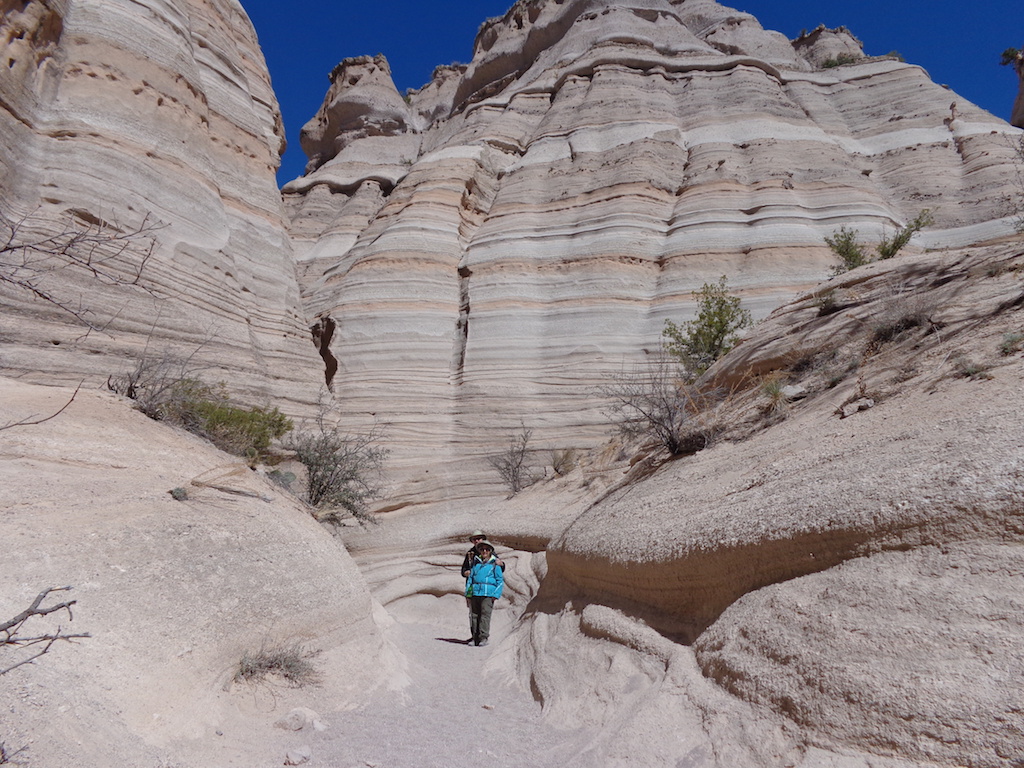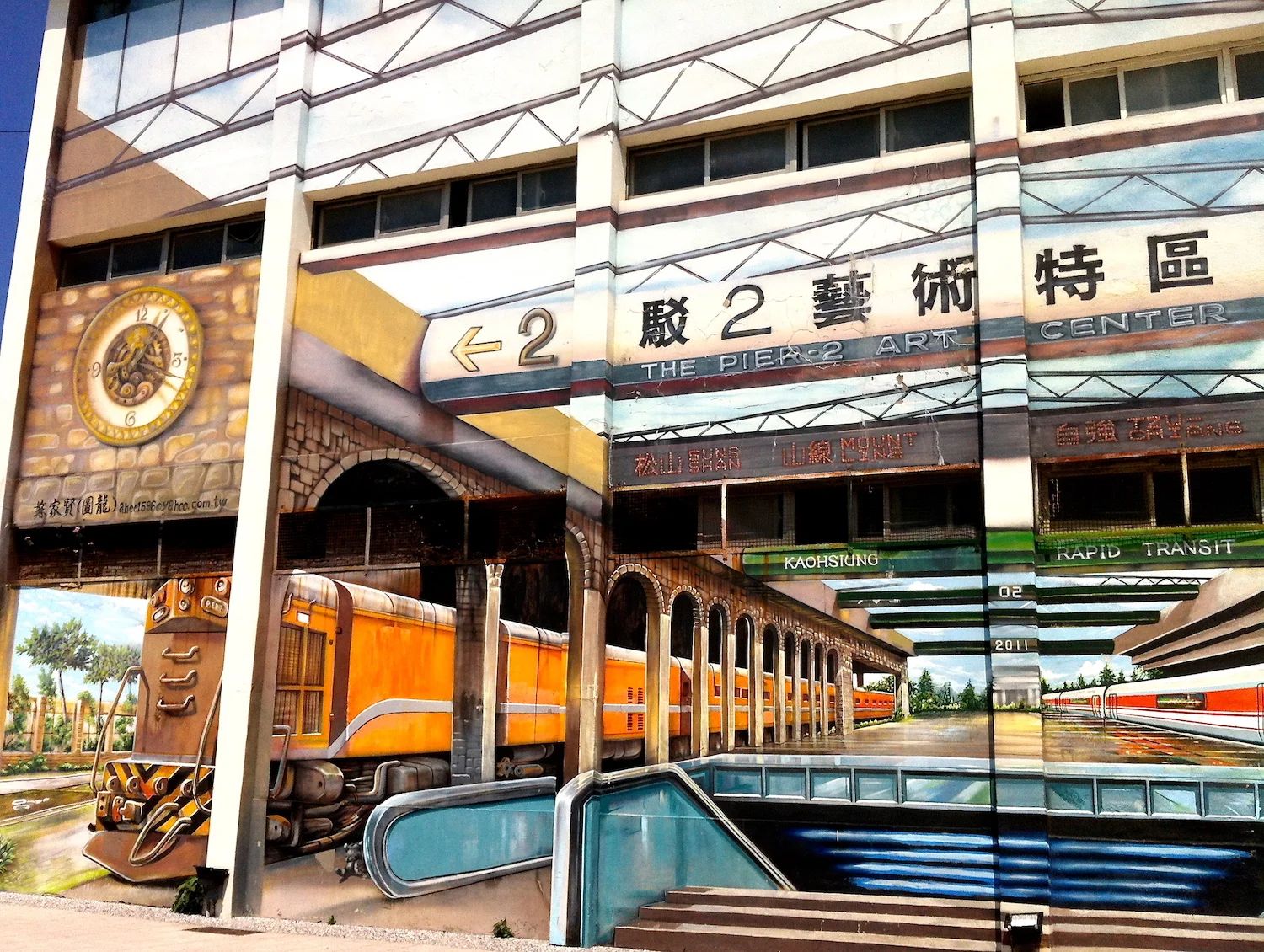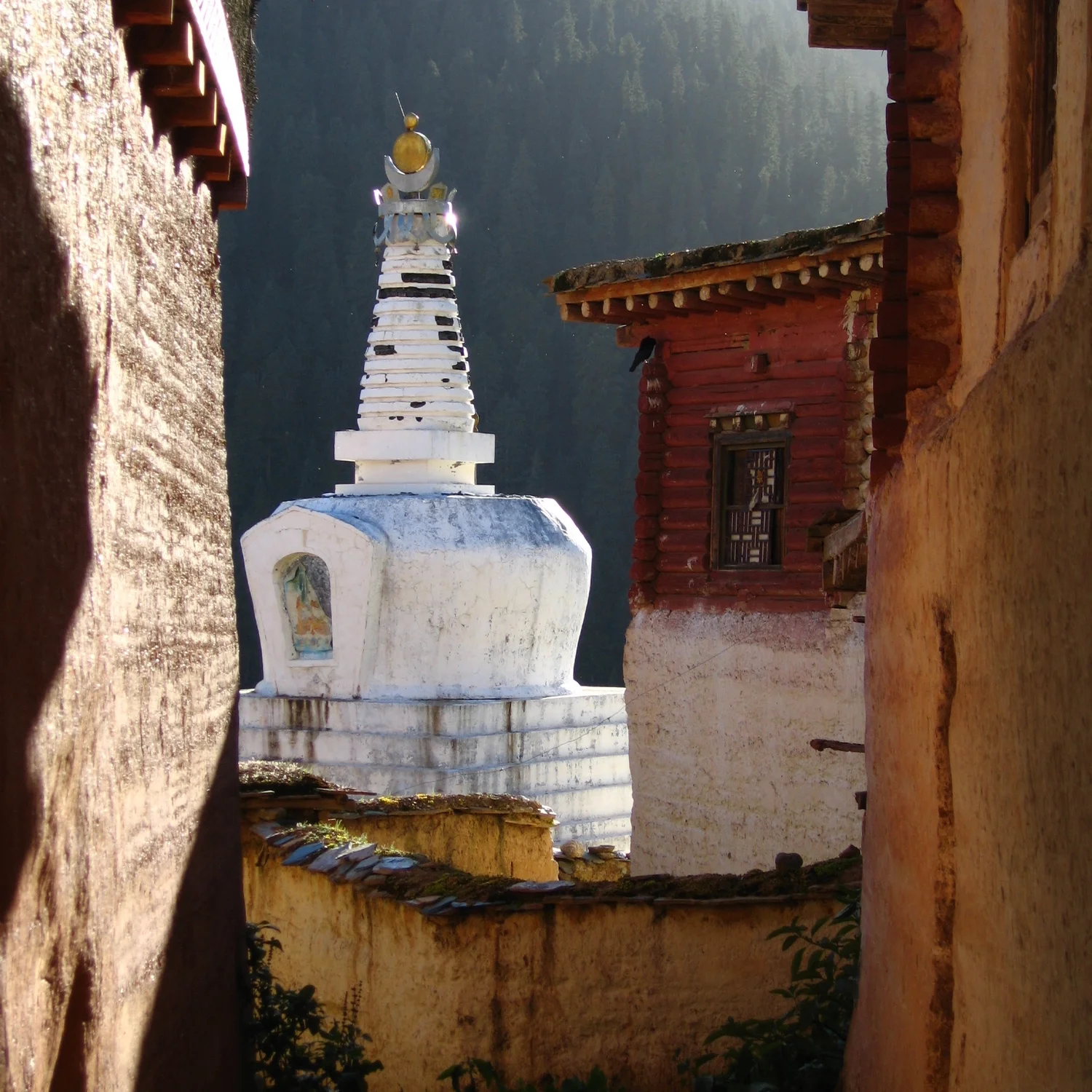It's not always easy to age. But here's the thing. It happens to everyone. In this story, discover how writer Carolyn Handler Miller faces the physical and emotional challenges of aging during a hike at Kasha-Katuwe Tent Rocks National Monument in northern New Mexico.
All in Off-the-beaten path destination
Spring Fling in Kaoshiung
When writer Chris Pady decides to slip away for a few hours on a friend's bicycle while vacationing with his wife and kids in Kaoshiung, Taiwan, he discovers the Ai He (Love RIiver) path. What begins as a hot and steamy fling in the form of daily cycling escapes, ends with knowing Kaoshiung a little better. And the best part: No guilt.
The Silent Treatment
Mary Ann Treger is a talker. When she's not talking, she's texting or emailing or surfing social media sites. Being connected is her cocaine. Even alone at home, political pundits yak on the television in the background. So why would this motor-mouthed writer go cold turkey and sign up for a silent retreat in an isolated abbey where shutting-up is the numero uno requirement? Read on...
A Kayak Pilgrimage
by Dan Dworkin
To travel solo for days in a kayak is to be not on or in but of the water. It loves you, rocks you like your mother did, speaks to you with many voices, supports your meandering, bathes you, feeds you, tells you when to travel and when to stay still on the island of the moment. On every trip there is a time of storm, of being wind-bound when the judicious kayaker stays put, writes, rests, wanders, constructs stone sculptures and listens for the still, small voice.
Exploring Dumei’s Tainan
My wife, Michele, and I spent much of our twenties in one of Taiwan’s lesser known cities, Tainan, where we soaked up the former capital’s unique culinary, social, and cultural delights. Food and rent were cheap while teaching wages were high. Meeting friends for a lavish feast on a whim was practically the norm.
A Foodie's Iran: 2 Authentic Recipes You Can Make Right Now
by Paul Ross
Warned not to go, I followed my appetite to Iran and have returned home filled with beautiful memories, blessed with new friends, and brimming with the desire to show and tell, taste and smell, and surprise all those who never expected to see me again.
NEW HAMPSHIRE—Presidential Primaries, Sightseeing, Skiing, and Summer Fun
by Judith Fein
When I was a child, living in New York City, my family loaded themselves and their belongings into a car every August and headed for New Hampshire. There was never any question about going somewhere else; we had allergies and Bethlehem, New Hampshire had no pollen. In a fit of hopeless nostalgia, I decided to go back this past summer, to see if I could find the locus of the sneeze-free bungalow colony where we stayed. And, being a travel addict, I decided to check out what else there is to see in New Hampshire with 10 days, a car, and a desire for culture, charm, a foodie infusion, local attractions, art, nature, and quirk.
I discovered that New Hampshire is a year-round destination: Fall foliage viewing, skiing, and Presidential primary candidate viewing that starts in the Winter, and touring and hiking in the Summer.
At the Bathhouse in South Korea
by Dina Lyuber
Being naked in public, for a North American, is the stuff of nightmares. Why? Is it because our bodies are so embarrassing? Perhaps it’s just a social convention; we are expected to hide our bodies, and so we feel awkward in public spaces when we must expose them. Maybe this is why many tourists avoid bathhouses. After all, they have a perfectly nice, private bathtub in their hotel room. And back home, they can wear a bathing suite as they sink into the hot tub at the community pool.
They may have avoided exposure, but they have no idea what they are missing.
Farewell to the Highlands: Pisco Sour to the Rescue
by Angela Smith Kirkman
“Meet us at El Embrujo in 30 minutes,” the voice on the other end of the line says in Spanish.
“Gloria?”
“Yes, I’m here with Marlith. We’re sending a taxi to pick you guys up. It’s your last night in Peru—our last chance to boogie down.” [My translation.]
“Thanks for the invite, Gloria, but I’m sorry, we just can’t do it.” I say, glancing toward my husband, Jason, who’s busy making sure all of our passports are in order.
I still haven’t quite figured out how to dance to Peruvian pop music, but I’m giving it my best shot.
Road Kill
Mageru pulls over to the side of the road, parks and idles the Land Cruiser. We are still a few hours away from arriving back in Addis Ababa. He looks over to me, pats the steering wheel and says “I am a little tired. You can drive.”
This does not strike me as a generosity I should accept. Although I am confident in Canada, Ethiopian driving doesn’t exactly rev my engines. “Oh…I don’t think so, honey. The driving here is very different from my experience back home.”
Misled on St Michael’s Way, Cornwall
by Elyn Aviva
It took nearly 11 years and three attempts for my husband, Gary, and me to complete the 12-mile-long St Michael’s Way across the southern tip of Cornwall. That’s a rather long time for a short walk—probably a record of some sort. And even though we ended up hiking more than 12 miles, we never did manage to walk the middle five.
But we persevered, although we were misled every step of the way.
by Dan Dworkin
What would you do if you were asked to voluntarily give up your cell phone, computer, TV, and sex for a month? When I revisited my Peace Corps assignment after forty-two years away, the people of my village in Fiji, indeed the residents of the whole province, were doing just that, in a manner of speaking. They were giving up tobacco, yaqona (kava), their ceremonial drink, and sex for a month. Why would they do such a thing?
One hundred and forty years ago, the people of a nearby village, Nabutautau, killed and ate the Methodist Reverend Thomas Baker. When I visited in July, 2011 they were conducting a ceremony of reconciliation, begging the Methodist Church to forgive them for their ancestors' actions.
Making History at Frommer’s
by Edie Jarolim
It is 10am and I am sitting in a tiny mid-Manhattan office, contemplating penis sheathes. I'm not talking about the latex variety, though my fantasies of spontaneous, sweep-the-papers-off-your-desk sex always end with concern about sexually transmitted disease.
The Trek to Little Potala Palace
by Chris Pady
While visiting the town of Derge (rhymes with reggae) in eastern Tibet, my partner, Michele, and I learn of Palpung, the area’s largest and most important Kagyupa (White) sect monastery, locally known as the “Little Potala Palace”.
Yet despite Palpung’s reputation, we have no luck hiring a guide through any of the town’s hotel staff, shopkeepers, or restaurant owners. Finally, we bump into an English-speaking monk who promises to arrange everything for us. “Meet here at 7 o’clock tomorrow morning”, he instructs, pointing to a designated spot. Nothing about the arrangement spells certainty, yet we’ve got nothing to lose.
Stay and Away
Two young men, Juan and José sit, side-by-side, day after day, week after week, month after month, year after year, beside the road, watching the cars and the vans and the trucks and the buses going by.
Both are high school graduates, but no more than that; neither of their families could afford to send them to school anymore.
Juan lives on this side of the road. He helps around the house, helps to raise his younger brothers and sisters, and helps in his mother’s ukay-ukay (used clothing) store. Juan has not heard from his father for years.
One Night in Puno
by Kate McCahill
For six hours, the bus creeps south from Cusco towards Lake Titicaca, crossing arid, wintered plains and sprawling Peruvian cities littered with plastic bags in a hundred colors. It’s late afternoon before we reach marshland, and then we round a bend and here is the lake, ocean-blue and ocean-huge. The road tips down into Puno, a rippling, clay-colored city pinched into the shore. The woman beside me says that you can see Bolivia from here.
The Sacrifice Pole Grab Festival
by Chris Pady
I balance perilously on my teammate's shoulders, wondering what to do next. The crowd below me grows impatient. I would love nothing more than to wipe the beads of nagging sweat scurrying down my face in mini rivers, but my hands are covered in greasy grime. The cacophony of blaring music and people screaming is so loud that I can barely hear myself think.
Touring for Gold: Traveling in an Economy
by B.J. Stolbov
I’ve often wanted to see where the gold in my wedding ring came from, or the gold in a bracelet and necklace, or the gold in a camera, cell phone, and computer. (Yes, there’s gold in a computer!)
Didipio Gold Mine isn’t easy to get to. It’s in an isolated corner of Quirino Province in Northern Luzon in the Philippines. It’s more than an hour’s drive from the nearest town, Didipio. The narrow, gravelly road twists and turns, up and down, through hills and valleys, untouched and unspoiled, lush and green, with stands of coconuts and groves of bananas, lots of bananas. Only a few houses can be seen from the road. The mine is out-of-the-way in one of the least populated areas in one of the least populated provinces in the Philippines.
The Little Burmese Tout in Training
I was an easy target, strolling happily towards the temple outside
As a seasoned traveler, I’d seen my share of touts. Overly
I learned long ago to avoid eye contact. Keep walking. Say nothing to encourage them. But from the moment my plane touched down in Burma, I felt no need for such guardedness.
Bhitarkanika Sanctuary: An Indian Getaway Into the Wild
The darkness of the night and the troublesome roads were worrisome, and at first it was a relief to get out of the car, but then the destination itself proved to be a scary proposition. Our ferry in the moonless night looked sinister. And when we thought about the fact that we had entered the terrain of ferocious crocodiles, the scene in front of me seemed straight out of the famous Anaconda movies. The lone lantern lighting the boat and the stillness of the water around us felt menacing. At first, most of us laughed to ward off our fear.
And then none of us spoke. Did we fear waking the reptiles? I do not quite know for I had become too numb to think coherently. Do not mistake me; I am not one of those who succumbs to fear very easily. But when it came to the prospect of being eaten by crocodiles, my mind became my own worst enemy. I kept repeating to myself that the creek was full of salt water crocodiles and I kept replaying the visuals of the Anaconda movie. In retrospect, and with objectivity, I can say that the boat ride was actually peaceful and serene.


















